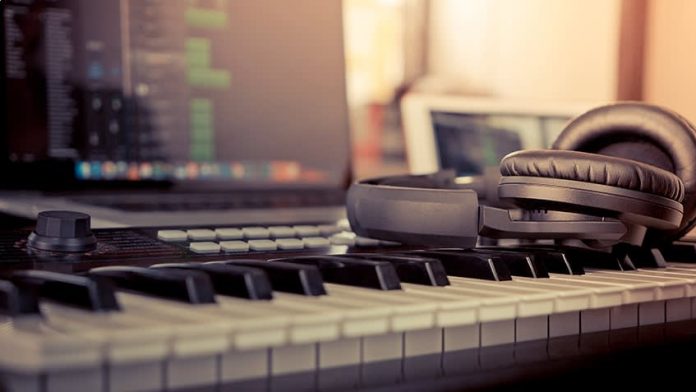This article is written by Pratap Alexander Muthalaly, from the Government Law College Trivandrum. In this piece we focus on the legal regulations and complications that have arisen while making covers of songs. The legality of playing music at public functions is also examined and discussed at length.
Table of Contents
Introduction
In recent years there has been an increased amount of legal protection and importance given to musical work. This has been in the form of various copyrights issued to protect the sound and written work of various music artists.
Overview
Copyright law, especially those portions regarding music can often tend to be confusing. However, in spite of this the two basic rights listed below remain homogeneous for the most part:
- The first right protects the underlying musical composition—that essentially refers to the specific structure and combination of musical notes, chords, rhythm, harmonies, and also song lyrics. The law refers to this area of copyright as a “musical work.” This is also referred to at times as the “musical composition” or the “song.”
- The second basic right is with regard to the actual recording of a musical composition, this specific concept is referred to in copyright law as the “sound recording.” Another name for this is the “master” or the “recording.
While unsigned songwriters who perform and record their own unique original songs own both the musical work and sound recording copyrights in a song, it is quite common to see the two distinct rights being under the ownership of separate individuals or entities. The common practice is for music publishers to own or have control of the musical work copyright, and for record companies to own or have control over the sound recording copyright.
Irrespective of whether music copyright is in the form of a musical work or a sound recording, It must fulfil some of these basic criteria:
- The work in question must be an original work.
- Also, the said work must have some tangible or rather easily displayable medium of expression, like for example, written sheet music, a MIDI file, or even a digital recording.
Music Covers and Remixes
In recent times there has been a steady growth in the number of song covers created by various artists. This has been a catalyst for a great deal of discussion and debate regarding the present framework of copyright law that is in place. This has further stimulated the ongoing search to find an equilibrium or balance between the necessity to protect artists from various malevolent acts like audio piracy but also simultaneously encourage and allow new rising talents to draw inspiration from existing music works. Here are some cases that emerged as a result of the growth of covering music.
Gramophone Co. Of India Ltd. Vs Super Cassette Industries Ltd.
This case is widely regarded as being one of the first cases with regard to the concept of version recordings in India. In the said case, the Plaintiff had produced a number of audio records AKA version recordings, titled ‘Hum Aapke Hain Kaun’ under rights that were allegedly assigned to it by one Rajshree Productions Pvt. Ltd. Their complaint, in this case, was that the defendants had also launched an audio cassette by donning the title of “Hum Aapke Hain Kaun”. Along with this, the petitioners alleged that the design, colour scheme, get-up, and lay-out were all deceptively similar to the ones they had used for their recording.
The focal point of this case was centred on the meaning of the phrase “records recording that work” which is listed in Section 52(1)(j) of the copyright act 1956. Rather intriguingly, the Hon’ble Court held that “records recording that work” for all purposes was a reference to cases in which sounds are embodied and moreover it was stated that the word “records” bears no connection whatsoever to printed or written records, irrespective of the graphically produced combination of melody and harmony. The Court went on to further hold that an alternate title should be given with a clear declaration in bold lettering that the record in question was not an original soundtrack.
Next, in another case, Gramophone Co. Of India Ltd. Vs Super Cassette Industries Ltd., it was held by the Delhi High Court that in spite of Section 52(1) (j) allowing for version recordings, the said recordings could only be made with the permission and acceptance of the copyright holder.
In a subsequent case following this (Gramophone Co. Of India Ltd. Vs Mars Recording Pvt. Ltd.) it was stated explicitly by the Hon’ble Supreme Court that ‘version recordings’ are essentially fresh recordings, which are made using a new set of artists and can be made only in accordance with Section 52(1) (j) of the Copyright Act of 1956.
The next landmark judgment pertaining to cover versions was in the case of Super Cassette Industries Ltd v. Bathla Cassettes India (P) Ltd. Here the question of copyrightability of version recordings was discussed at length. In this specific case, the plaintiff moved an application for an injunction against the defendant alleging that they had infringed the plaintiff’s sound recording, which itself was in a version recording of an original musical soundtrack of the song ‘Chalo Dildar Chalo’ from the film ‘Pakeezah’ with some minor and largely unnoticeable variations.
In this judgment, the court dialled things up a notch by explaining the nature and manner of rights, pertaining to a musical work created under the ambit of Section 52(1)(j). The principle laid out, in this case, was that copying from an already copied work would not constitute infringement. Simply put, a version recording created under the ambit of Section 52(1)(j) is not capable of acquiring any independent right since the recording is an adaptation of an original recording, and therefore does not possess the originality required for copyright. As a result, what can be inferred from this ruling is that claiming a copyright infringement in the case of cover versions will not be accepted in a court of law.
While the erstwhile Section 52 (1) (j) of the Copyright Act, 1957 provided an exception from infringement to cover versions, the subsequent Copyright (Amendment) Act, 2012 has repealed the aforementioned section and instead placed a new section that is Section 31C, which gives provisions for a statutory license to make cover versions. The said provision enumerates that cover versions can be made only for literary, dramatic or musical work, where there is already a preexisting sound recording in place or with a stipulated license or consent of the owner of the work. Basically, this means that the artist covering the work is required to have the prior consent of the original artist before releasing a cover version of their song.
Furthermore, as per the Amendment Act of 2012, the individuals creating a cover version are not permitted to make changes to the literary or musical work in such a way that has not been previously altered whether with the consent of the original copyright owner except in cases where the alteration is technically necessary for the purpose of making the sound recording, this however only applies if the cover version has been made five years after the creation of the original.
As we can see from the host of cases listed above, the process of obtaining consent prior to the creation of a cover version has always been a rather tempestuous and controversial issue filled with legal ambiguity. Yet in spite of all this contention, the Indian Copyright Act has stood strong and had relative success in spreading all the literary, musical, and artistic works. The primary goal of the act is of course to safeguard the interests of copyright owners, while also ensuring that new aspiring artists are allowed the requisite freedom to facilitate the progress of the music industry. That is, copyright law aims at spreading knowledge and encouraging new artists. This is the logic behind abridgements, concept notes, cover versions, and other such inspirations being legal.
Recording and playing music in private ceremonies
In India, it is quite unheard of to have a private ceremony, (a wedding or an engagement) without loud music and dance. Therefore it might come as quite a surprise to many of us that playing pre-recorded sound recordings by way of any medium during these ceremonies, as per the Copyright Act 1957, has always been considered a violation of the copyright of the original owner’s work.
It is stated in Section 51 (a) (i) of the Copyright Act, 1957, that a person, who does not have a license granted by the owner of the copyright or the otherwise the Registrar of Copyrights or for that matter if the said person is in any way in contravention of the conditions of a licence that has granted by a competent authority under this Act then the said person’s act will be considered an infringement of the owner’s copyright. That is,In order to play music or pre-recorded songs at events, parties, hotels or functions, for commercial purposes, the concerned parties have to obtain a license at a particular tariff from the Indian Performing Rights Society Ltd. (IPRS), which has the exclusive authority over public performance rights and radio broadcasting rights.
Basically, this provision acts as a safeguard to protect owners from suffering pecuniary losses among a host of other things, like for example: when their work is illegally broadcasted or performed without their explicit permission prior to the event happening.In recent times these protections have however relaxed with the clarifications made by The Copyright Registry on the 27th of August, 2019. Basically, it was enumerated that the Act stops short of providing absolute rights to the owner of a musical work ‘Vis a Vis’- certain necessary exemptions in cases where the infringement is clearly innocent and unintentional. One such exemption states that under the ambit of Section 52 (1) (za), performances of a literary, dramatic, or musical work or the communication to the public of such work or of a sound recording in the course of any genuine religious/sacred ceremony or a celebration or function in an official capacity held by the Central or State Government or any local authority does not constitute infringement.
This includes Marriage procession and other associated social festivities all under the ambit of the term “religious ceremonies”.The Government has made it clear that in such situations the IPRS will grant a Free of Cost License (FOC). Some other exemptions include:
(a) in an enclosed room or hall meant for the exclusive use of residents in any residential premises (not being a hotel or similar commercial establishment) as a part of the services available exclusively or primarily for the residents there.
(b) as part of the activities of a club or similar organisation which is not established or conducted for profit.
However, in spite of all this, it is explicitly stated in the guidelines issued by IPRS that commercial establishments such as hotels, banquet halls, lawns etc. are not allowed to perform music publicly by any medium without having a license, which can be obtained by the payment of a royalty fee. The tariff imposed varies with the specific place. There are numerous factors that decide it. One of these is what class the city falls in and also the hotel room tariff.
Conclusion
The rising public debate in recent times over private parties recording and playing music has the potential to be channelled positively. That is, through controlled and sustained public debate one can talk about the problems over with the various stakeholders and find common ground before any overarching legislation is passed. Also, the issue of youtube covers needs to be addressed as well, given the steady increase in content creators in our country, especially in recent times. Furthermore, steps have to be taken to understand the nature of certain parts of copyright law, that are ambiguous or not very practical in reality. This can ensure that we have more effective and practical copyright law, that will ensure a brighter future for our society as a collective.
References
- https://www.managingip.com/article/b1kblzzmw11462/copyright-cover-versions-and-the-muddle
- https://www.mondaq.com/india/copyright/842236/your-wedding-sangeet-won39t-violate-any-copyrights-or-will-it
LawSikho has created a telegram group for exchanging legal knowledge, referrals and various opportunities. You can click on this link and join:
 Serato DJ Crack 2025Serato DJ PRO Crack
Serato DJ Crack 2025Serato DJ PRO Crack











 Allow notifications
Allow notifications


